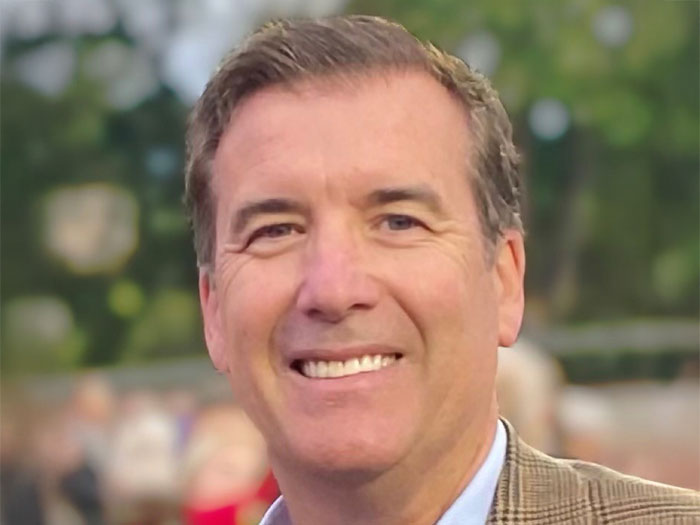Risk Scenario
Fleabitten
Disclaimer: The events depicted in this scenario are fictitious. Any similarity to any corporation or person, living or dead, is merely coincidental.
PART ONE: DOGS RUN FREE
Privately held Ramble, based in Asheville, N.C., is an emerging star in the rapidly growing market catering to the health and wellbeing of dogs.

When it launched in 2018, the company’s founders could not have known how lucky they would get when COVID struck.
The pandemic spurred a massive change in the lifestyles of Americans. Many of them, if they could afford it, sought properties further away from the city.
Lakeside cabins, ski retreats and properties in prime fishing areas became hot commodities. With those purchases came a desire to own a dog to go on walks with and to share those wide-open spaces. Many in the cities and suburbs also bought or rescued dogs, as the loneliness of the pandemic’s shutdowns pushed them to find some kind of companionship.
With the surge in dog ownership came a surge in demand for products to keep those pets safe and happy. The founders of Ramble hit on an approach using organic, herbal remedies to cater to the aches, pains and other afflictions dogs might suffer.
Three of Ramble’s products seemed to shine most brightly for investors. Its star product was a wild-caught salmon oil that owners could drizzle on top of a dog’s dinner for a nutritional Omega-3-laden treat. A second was a calming dog biscuit that included valerian and chamomile in its list of ingredients. A third was a joint-soothing formula, pill-based, that contained glucosamine.
In 2021, as the effects of COVID sent dogs into the arms of countless owners, Ramble’s so-far glossy sales figures drew the attention of private equity investors. One of them, Ogontz Capital, emerged the victor in the contest to win Ramble’s affections. With $25 million in investment, it acquired a 40% stake in the company by year-end 2021.
“Umm, in a situation like this, have any of you thought about us getting some transactional insurance in case Ramble isn’t quite what it appears to be?” says Peter York, a member of the company’s finance committee, in a mid-December meeting.
“Peter, no pun intended, but I think we vetted them pretty well,” says the company’s CEO, Greg Bailey, in response. In deference to the CEO, the other four committee members erupt in laughter at Bailey’s run-of-the-mill play on words.
York stares at the group for a beat, then persists.
“I’m serious — I think we should look into it,” he adds.
The other committee members exchange noncommittal glances. Ogontz Capital has been running extremely hot, with return on investment percentages in the high double figures for three years straight.
Maybe it’s groupthink, maybe it’s ego cloudiness, but no one else on the committee takes up York’s line of reasoning.
“I’ll think about it, Peter,” says Bailey, in a tone that signals the matter is closed.
PART TWO: NOT ALL THAT GLISTENS
At the end of 2023, Ogontz is two years into its investment in Ramble and things are looking very good. While some of Ogontz’s other investments are now lagging, Ramble is seeing sales increases in the mid-double digits per year. It recorded a 34% jump in sales in 2022, and a 42% jump in sales in 2023.

A provision in the agreement between Ramble and Ogontz gave Ogontz the option of recapitalizing by taking a dividend from Ramble’s profits. Ogontz exercised that option and harvested a $10 million dividend at year-end. The dividend broke no laws, as a record of it was dutifully filed with regulators in Delaware, where Ramble was incorporated. Ramble’s original shareholders — those who were the kind to read their prospectuses — took note of the withdrawal, but they were seeing such nice returns on their own investments (at least on paper) that they remained sanguine.
The end of 2023 marked a peak in the fortunes of all concerned, although none of them knew it at the time.
In the first quarter of 2024, Ramble’s general counsel began receiving reports of a disturbing trend. Customers were pushing back against the advertised efficacy of Ramble’s products.
One of the most damning allegations came from a couple in Maine that had paid a lab to test Ramble’s “wild-caught” salmon oil. In fact, according to the lab results, there was some salmon oil in the product, but there was also oil that came from mackerel and cod. Those oils, though not harmful, were not listed on the product’s list of ingredients.
Adding to the consternation was the fact that any salmon oil in the product came not from wildcaught salmon but from farmed salmon. Not the same thing!
Looks like someone in Ramble’s supply chain gave it the switcheroo.
 There is additional damage when customers start complaining that the calming dog biscuits are not having the desired effect on their dogs. In fact, in some cases, the biscuits are giving dogs allergic reactions that result in hives and hair loss.
There is additional damage when customers start complaining that the calming dog biscuits are not having the desired effect on their dogs. In fact, in some cases, the biscuits are giving dogs allergic reactions that result in hives and hair loss.
The reputational damage Ramble is suffering on social media and in the business press as a result of concerns about its truth in advertising is sudden and severe. Worse is coming.
When optimism was high in mid-2023, Ramble executives had splurged on two massive manufacturing facilities intended to increase the company’s production by 200%. Ramble borrowed heavily to fund construction of the new facilities.
In 2024, Ramble suffers a decline in sales due to reputational damage that, combined with its new debt load, hits the company like a sledgehammer.
As the company’s investors meet near the end of 2024, what was once a rosy business success story is turning into a nightmare.
“We’re actually facing bankruptcy, and you let a private equity company take out $10 million last year? Where’s our money?” shouts one enraged investor. His voice is soon joined by many others. They are demanding the resignation of Ramble’s company leadership, and talks of a lawsuit are getting louder and louder.
PART THREE: IN THE DOGHOUSE
In the spring of 2025, a group of Ramble’s original shareholders files a lawsuit against Ramble’s board of directors and Ogontz, arguing that the Ogontz recapitalization dividend unfairly diluted the value of their shares, which have already been buffeted by Ramble’s increasingly modest sales figures. A jury finds in favor of the original shareholders to the tune of a $25 million judgment against the board members of Ogontz and Ramble.
If only the Ogontz board members had taken heed of the advice given by one of their own at the end of 2021. With no reps and warranties coverage in place to shield them from any fallout from their investment in Ramble, the board members can only watch helplessly as the $12.5 million judgment against them runs smack into their general partnership liability coverage.

Ogontz’s $2 million retention is gone, as is a $2 million primary layer. The damage inflicted also burns right through $5 million in excess general partnership liability coverage.
The fallout from Ogontz’s missteps in its relationship with Ramble is not only financial — it’s personal and professional. Two of Ogontz’s board members resign, and the company’s director of risk management soon leaves for another company. The damaged relationships from the company’s losses are irreparable in some corners.
It’s late in 2025, and Greg Bailey, the CEO of Ogontz Capital, is not going to be having a happy Christmas. Having just received the resignation of yet another board member, Bailey spies his cocker spaniel, Daisy, scratching at a small but livid rash on her flank. Daisy can’t seem to get any relief.
“Will you knock it off?” Bailey thunders at his dog, and the poor pooch tears off out of the room, not wanting to bear any more of Bailey’s wrath. &
![]()
Risk & Insurance® partnered with Westfield Specialty to produce this scenario. Below are Westfield Specialty’s recommendations on how to prevent the losses presented in the scenario. This perspective is not an editorial opinion of Risk & Insurance.®.
The significant loss experienced by Ogontz in this scenario is not uncommon in the private equity world. Frequently, the acquiring private equity firm is overly confident in their due diligence during the acquisition of a portfolio company or is concerned about the cost associated with the purchase of Reps & Warranties insurance. Unfortunately, this can result in unintended monetary consequences associated with potential lawsuit damages in excess of the corporate General Partnership Liability (GPL) policy limits, which can be implicated under some scenarios. The use of the GPL policy to pay monetary damages associated with the fictional judgment described above would likely result in much higher insurance premiums, higher retentions and more restrictive coverage over an extended period in the real world.
Private Equity firms should consider the following factors when seeking to help mitigate exposures associated with the acquisition and management of portfolio companies:
- Strongly consider purchasing “buy side” Reps & Warranties coverage. This acts as the first line of defense in many situations where a portfolio company has an unidentified issue that results in bankruptcy or financial difficulty*. Additionally, this coverage can help reduce potential claims against the corporate GPL policy which is intended to provide coverage to the company, it’s directors and officers and individuals who serve on portfolio company boards across funds.
- Maintain robust General Partnership Liability limits so that the company has adequate protection across the entirety of its portfolio to protect the corporate balance sheet and provide coverage to individual outside directors in the event of un-indemnifiable loss.
- Select primary GPL coverage that does not include exclusionary language for situations that involve a failure of Representations and Warranties. The insurance market is evolving in this area, however coverage is still available.
*Please review your actual policy language to see applicable coverages, limits and exclusions.








